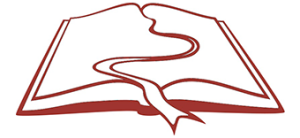A Taoist tip for doing research
Sometimes when you are trying to focus on a research puzzle, or when you open up a document to write that methods section you have been avoiding for a while, you may notice your mind flittering everywhere in stead of concentrating at the task you sat down to do. This constantly happened to Chris* as he was finishing his thesis. So he came to me and asked: “How can I create more focus and improve my motivation in this final thesis stage?”
We started by mapping his daily working rhythm, including his energy levels during the day and the difficulty of the tasks at hand. If you know at what moment your concentration is usually at its best, it makes sense to tackle something difficult then, rather than give it a try when your energy is low only to give up with a sense of failure and frustration. Mapping his day by the hour provided Chris with a lot of insight in the way his mind, his energy and concentration levels, and his feeling about his work mutually affected each other.
It appeared that he worried a lot about his supervisor’s judgment of the quality of his work. Particularly in low energy moments fears that it might be insufficient took over. His mind would start racing from one subproject to the next minor task, increasing his worry for lack of overview over the thesis as a whole.
Rather than dive into GTD-like structural planning or psychological analysis of this fear and the thoughts causing it, we did a Taoist wu wei experiment. Whenever Chris noted that his mind started wandering and all kinds of unbidden thoughts came up, he would briefly observe them without judgment, relax, and then bring his attention back to what he was doing. To help himself do this, he put a piece of paper next to his computer to write down a word or phrase of whatever his mind would spontaneously bring up. This way he could rely on the thought still being there to be addressed in due time when he was done working, which made it easier to relax and let go of the unasked for thought and to regain his focus. Sometimes the thoughts make him angry, worried, or irritated. His usual strategy was to fight himself and struggle on. To his surprise, I suggest that he should stop working for 5 minutes when this happened. I show him how a brief relaxation exercise can help focus on your body and bring you back to here and now, the moment and the puzzle to solve or the paragraph to write.
Half a year later Chris emails me that the thesis is done. Well done.
* Chris is not his real name.

Plaats een Reactie
Meepraten?Draag gerust bij!